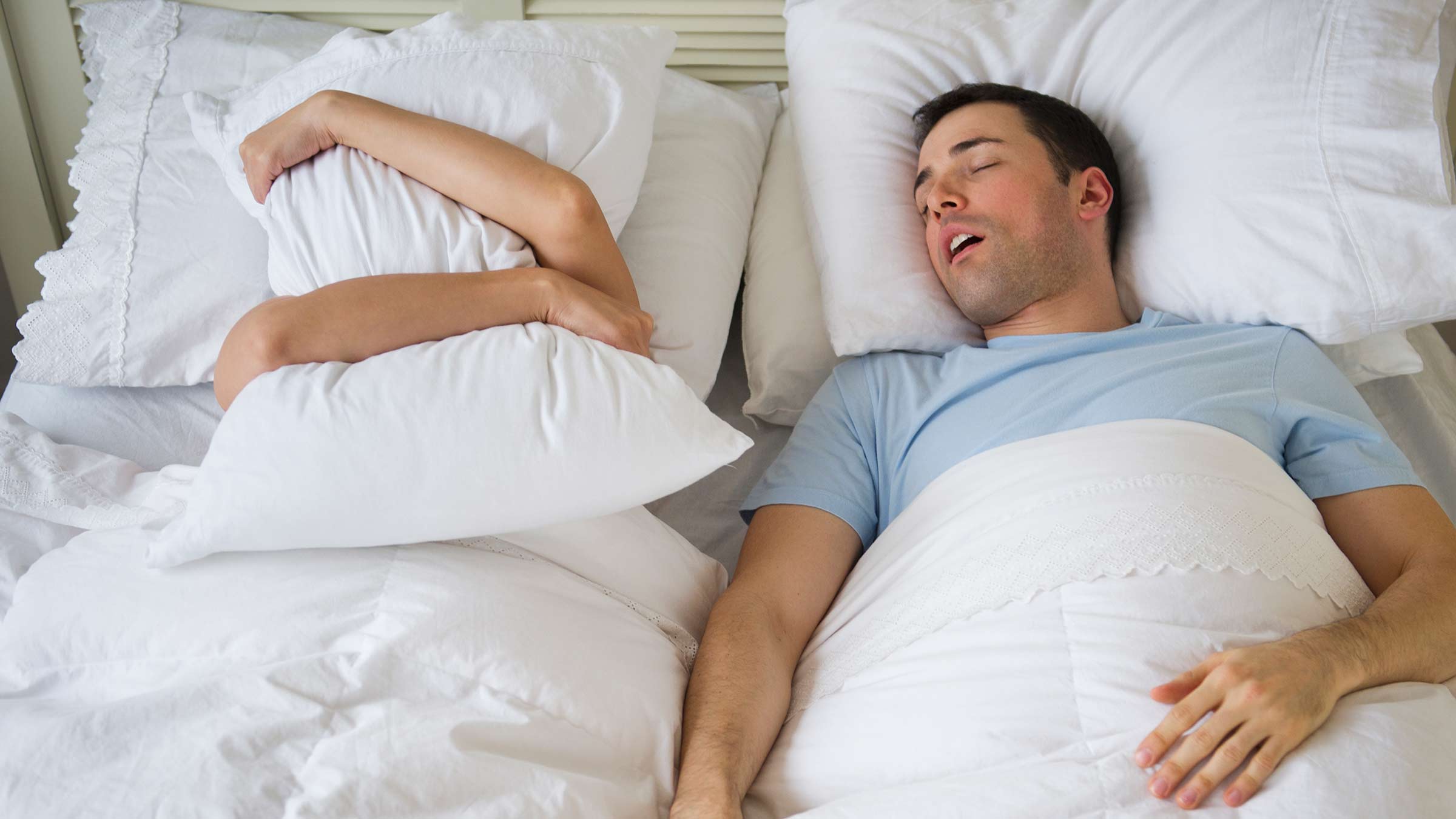
It’s not unusual to have trouble sleeping some nights. You wake up to go to the bathroom and then you can’t fall back to sleep with the next day’s to-do list running through your head.
But it may be that even on nights when you sleep eight to nine hours or more, you wake up tired and stay that way. That could be a sign that you have obstructive sleep apnea or another sleep disorder.
What is sleep apnea?
There are several less obvious signs of the sleep disorder which happens when you stop and then restart breathing many times during the night. These pauses in breathing can cause brief arousals that wake you up and can lead to feeling tired when you get out of bed or feeling tired during the day.
Obstructive sleep apnea, the most common type of sleep apnea, happens when the muscles at the back of your throat relax and block the airflow into your lungs.
Tiredness and loud snoring can be signs of sleep apnea, but there are others you may not know.
Surprising signs of sleep apnea
- Uncontrolled high blood pressure – The sudden drops in oxygen that happen if you have sleep apnea can raise your blood pressure and put stress on your heart.
- Trouble with attention and memory - If you’re not getting enough hours of deep sleep, which is required to feel fully rested, you’re left tired during the day and less mentally sharp.
- Headaches upon waking – Headaches can happen when you wake up and then improve or resolve through the morning. This can be due to increased carbon dioxide levels that can occur when you briefly stop breathing several times while you sleep.
- Loud snoring – Along with loud snoring, there’s often pauses before the snoring starts up again.
Causes of sleep apnea
- Obesity – Being excessively overweight causes more fat tissue to develop in your throat, making it narrower and more likely to collapse and close off your airway when you sleep.
- Age – After 65, you’re more likely to develop sleep apnea even if you’re not obese. Aging can cause the tissue in your throat to be less elastic and for you to have fewer muscles there. As a result, it’s easier for your airway to close off temporarily when you sleep.
- Retrognathia is a condition you’re born with in which your lower jaw is set further back than your upper jaw, leaving a narrower airway.
Treatments for sleep apnea
Sleep apnea can be treated in various ways:
- Continuous positive airway pressure (CPAP) machine is one of the most common treatments for sleep apnea. The device blows air out through a mask that goes over your nose or nose and mouth to keep the airway open while you sleep. Only about half of patients who try it use it regularly, because they experience discomfort with how the mask fits or the blowing air.
- Hypoglossal nerve stimulator is a medical device that’s placed in your upper right chest in a surgery. The device stimulates the nerve that controls the tongue so that the tongue moves forward, keeping the airway open during sleep.
- Mandibular advancement devices (MADs) are devices that you wear in your mouth at night, like a retainer. They move your lower jaw forward to prevent your tongue and soft tissues at the back of your throat from blocking your airway.
- Surgery can be done to remove tissue around the entrance of your throat and back of your mouth.
- Weight loss can be effective in improving obstructive sleep apnea.
What should you avoid if you have sleep apnea?
- Alcohol: If you drink before bed, your sleep apnea can become worse. Your periods without air can go longer than if you hadn’t been drinking. Alcohol relaxes your throat muscles, increasing the odds that they’ll close off the airway temporarily. You might think alcohol helps you fall asleep. It could. But it also causes you to have more broken-up sleep and less deep sleep, which is necessary to be fully rested and have a good memory.
- Smoking can trigger inflammation and swelling in your upper throat. That can narrow your upper airway and make it harder to breathe when you sleep.
If you’re often tired when you wake up in the morning and during the day, even if you’re getting eight hours or more of sleep, talk to your health care provider. Sleep is so important to being happy and healthy.

Take charge of your sleep
Learn more about the causes of sleep disorders and treatment options available at Ohio State
Take charge today




